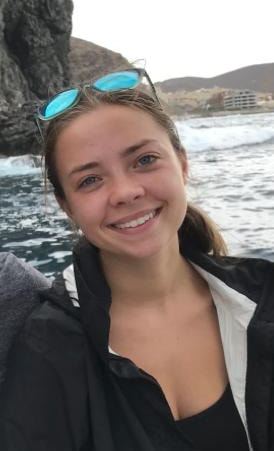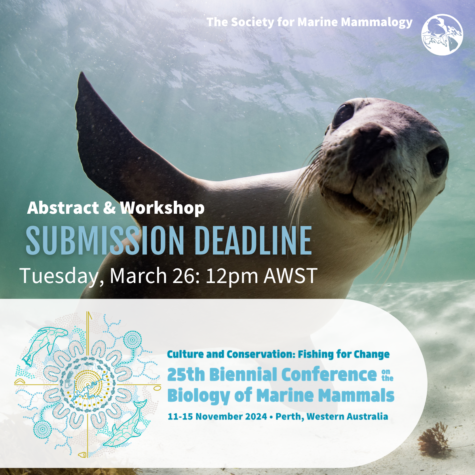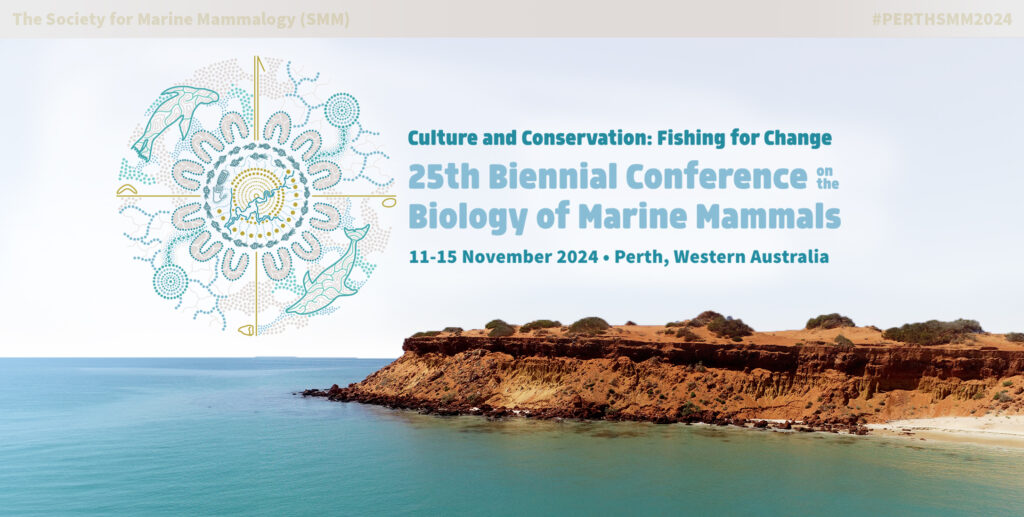You are invited to the next edition of the SMM Editors’ Select Webinar Series. This series highlights the latest and most exciting marine mammal science published in the Marine Mammal Science Journal. The SMM created this series to give scientists and citizens around the world a chance to engage with marine mammal scientists, learn, and ask questions. All are welcome!
Join us on Thursday May 16th 2024 at 8 am EDT / 2 pm CET
for the next SMM Editors’ Select Series Webinar:
Are abrupt humpback whale song changes specific to the Southern hemisphere?
with Drs. Maria Isabel Gonçalves and Divna Djokic
This event was recorded live and published on youtube.
For future events, please check our news room or join the SMM Facebook page.
About this talk:
The humpback whale (Megaptera novaeangliae) is a species known for its singing abilities. Humpback whale song is a complex system built in a methodical way: units, the smallest elements – similar to notes – combine to form phrases, repeated phrases constitute a theme, and different themes make up a song. Each population of humpback whales has a specific song, which is predominantly expressed on the breeding ground.
These songs change throughout the year. When the change is subtle, it is called song “evolution”. Sometimes, however, songs go through sudden and intense changes, recognized as song “revolutions”. These abrupt changes have so far only been recorded in humpback whale populations in Australia and surrounding areas.
Our understanding of how, why, and how much difference there is between song “evolution” and “revolution” is still growing. However, using passive acoustic monitoring, we identified abrupt changes in humpback whale song in the Southwest Atlantic, off the Brazilian coast. We suggest this is the newest case of song revolution and the first recorded outside of the Pacific. Our findings also indicate these kinds of abrupt changes may only occur in Southern hemisphere humpback whale populations, and in this talk we propose several reasons for this difference from Northern hemisphere whales.
About the presenters:
Divna Djokic is a biologist originally from Serbia. As Serbia has no sea, she headed to the coasts to learn to speak whale. She completed a Masters in Marine Ecology in the lab of Dr. Michel Andre, focused on the acoustic ecology of sperm whales and worked as a Marine Mammal Observer in Italy before heading to Brazil, where she completed a PhD in humpback whale acoustics under the supervision of Dr. Renata Sousa Lima. The paper she will present with her colleague Isabel is a part of her PhD thesis research.
Maria Isabel Gonçalves is a Portuguese marine biologist who lives in Brazil and coordinates the Whales from the Hill Project. She received her PhD in Ecology and Biodiversity Conservation from the State University of Santa Cruz, Brazil, which was the starting point of the Whales from the Hill Project, a research and conservation effort that studies humpback whales in southern Bahia. Her interests include the ecology, behavior, and communication of cetaceans and communicating science to the broader public.
Open access to this article is made temporarily available in the weeks around the presentation and can be found here. Current SMM members have access to all Marine Mammal Science papers.
Missed a presentation or want to share this series with a friend? All previous Editors’ Select presentations are recorded and archived on our YouTube channel here.
 Congratulations to Emma Chereskin for winning the Louis M Herman Research Scholarship 2024 for her proposal;
Congratulations to Emma Chereskin for winning the Louis M Herman Research Scholarship 2024 for her proposal;
